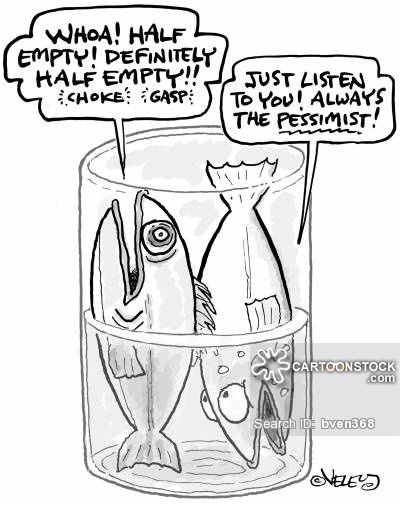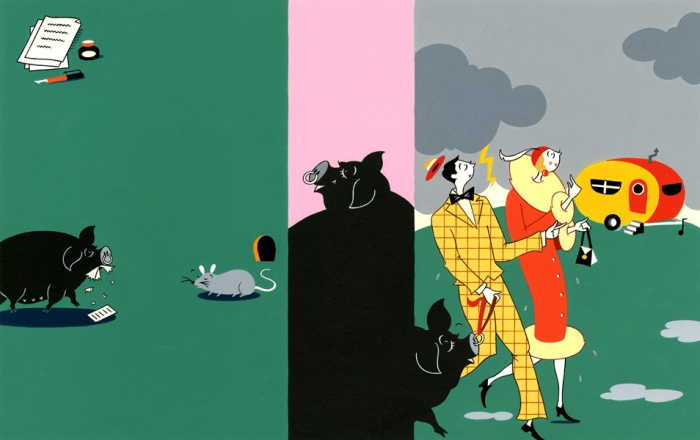
One evening a colleague of mine stopped me in the corridor and related an interesting incident. “I was stuck at this crossing “, he said “and there was this chappie driving a fancy car in front of me who had cut across and wedged himself in front of me. I was boiling mad. To make matters worse he slowly started rolling back towards me. I was shocked and didn’t know what to do. I tried blowing my horn at him, even yelled at him in frustration fully confident that he was going to back into my little box of a car and crush the front. It was only when I looked out of the side of my car and to my horror, realized that it was not he who was rolling backwards but my car that was rolling gently forward on an almost indiscernible downward slope. I had an epiphany. His earlier act of cutting across me had got me so mad that I had assumed that he was rolling towards me, while the truth was that it was I that was rolling towards him. I had subconsciously chosen the lens that I wanted to wear and it took a reality check to jolt me out of the lens!”. Thankfully his lens had the sense to change itself in time! Reality helped of course (apart from the fact that he had a faint suspicion that it is highly unlikely that the whole world around you could move backwards simultaneously. Perhaps, his brain told him -it is just possible that you are moving forward?)
The lens I wear is to do with my attitudes, my beliefs, the stories I tell myself from my life experiences and my judgments as was powerfully evidenced by my friend
I have, over a period of time discovered that this lens wearing is a fairly insidious business. Half the time I don’t even realize that my world view is being strongly driven by the lens that I am wearing, and the other half I don’t even know I am wearing a particular kind of lens! The power of the lens though is that it can cut both ways.

The beauty is that the lens can take you up or take you down into the depths of despair. In fact, I had a cousin (yet another relative in my list of teachers of life’s lessons. I plead guilty to a nepotistic ascription of wisdom to my family) who had the ability to find something positive in every sling and every arrow of misfortune big or small. It was infuriating to all the rest of us. “How can he not find it upsetting? How can he pretend that the mess he is in is fine? He is not being real “All of us siblings, once removed, would constantly be at him to see the stark reality for what it is, so that he could recognize that the world is not always nice and that around every good turn there is a bad one lurking waiting for you to come around the corner, rubbing its hands in evil glee. It was all water off a duck’s back. “One day he will learn it the hard way” The man didn’t relent or change his worldview.
And the inevitable happened. He did extremely well in life and most importantly, continued to deal with life with joy and equanimity! What the rest of us realized over time was that it was we who were wearing the wrong lens. His lens was ” glass half full all the time” and ours was “glass half empty most of the time”. We therefore missed seeing the opportunity in adversity. He learnt life’s lessons well; while we missed most of the chances to learn, to reinvent ourselves, to beat the mickey out of the chappies in the ancient Fields of Punishment who dole out misfortunes in decent sized doses (Sisyphus will testify).
Nature can only present me with situations. What I can potentially make of it depends on my worldview- my Lens. If I am miserable, in a bad place, feeling down and out – My Lens did it. If today you are happy, you have arrived and you are as close as you can be to your aspirations- Your Lens did it.


